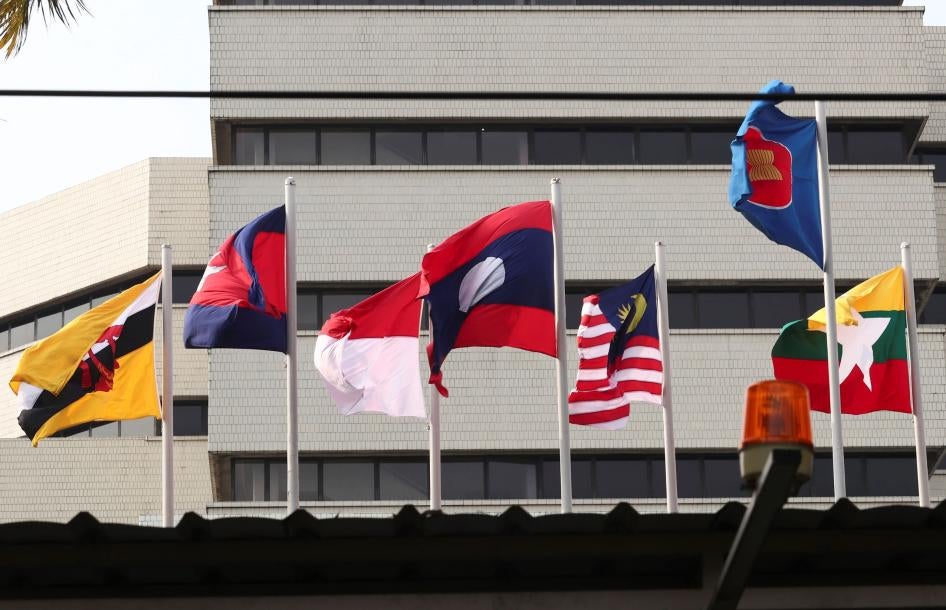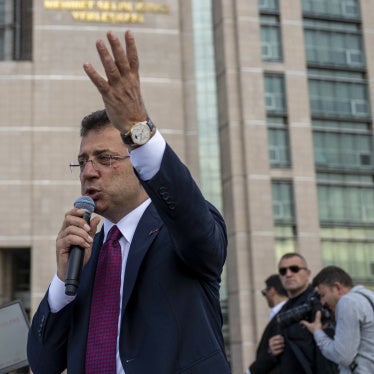The Biden administration on April 16 announced that the White House will host a special summit with members of the Association of Southeast Asian Nations (ASEAN) on May 12.
Invitees include Philippine President Rodrigo Duterte, an unrepentant and undiplomatic architect of mass killings in the name of a “war on drugs” under investigation by the International Criminal Court. (“I don’t care about human rights,” he said last year.) A bevy of other autocratic leaders are also invited, including Cambodian Prime Minister Hun Sen, a former Khmer Rouge commander turned kleptocrat who has been in power for over 36 years. The invitation was first made by US Secretary of State Antony Blinken in a December 14 speech in Jakarta, but dates were not finalized until now.
The summit stands in jarring juxtaposition to last year’s “Summit for Democracy,” and the administration’s rhetoric about human rights and democracy, including in Blinken’s speech inviting ASEAN to the US.
“Freedom is about the ability to write your future and have a say in what happens in your community and your country, no matter who you are or who you know,” Blinken said in December. The administration is hoping to foster a “free and open Indo-Pacific.”
ASEAN countries are neither free nor open.
Myanmar is led by a coup-installed junta and a military with a long track record of unfettered brutality. While the US and other ASEAN members have decided the country can only send a “non-political” representative, the invitation is still a stunning twist coming only weeks after the administration formally determined that the military committed crimes against humanity and genocide against Muslim Rohingya. It has only been a little over a year since the military’s February 2021 coup and jailing of Aung San Suu Kyi and other civilian officials. The country’s senior military leadership and much of its military-owned industries are under US sanctions.
Vietnam, a one-party authoritarian state, does not hold democratic elections and has imprisoned hundreds of critics, dissidents, and journalists. Laos is a similarly repressive one-party state. Brunei’s absolute monarch, Sultan Hassanal Bolkiah, exercises exclusive and unchecked authority and has been in power since 1967. The country has no elections, free media, or meaningful rights protections.
Thailand, once a genuine democracy, suffered a military coup in 2014 led by Gen. Prayut Chan-ocha, which led to rule by a junta, then the adoption of a new constitution entrenching military rule and allowing engineered elections in 2019 that Prayut, predictably, won. Authorities have arrested democracy activists and critics of the monarchy, dissolved a major opposition party, and suppressed youth-led democracy protests, often violently. There have been numerous cases of torture as well as enforced disappearances.
Cambodia’s leader, Hun Sen, who has manipulated or stolen outright every election since 1993, has now largely eliminated the political opposition and independent media. Over 60 political prisoners are jailed on bogus criminal charges.
Singapore too has an overwhelmingly repressive government. (The Biden administration did not invite them to the Summit for Democracy.) Citizens face severe restrictions on free expression, association, and peaceful assembly through overly broad criminal laws and regulations, including aggressive internet content laws, that are regularly enforced.
And even Indonesia and Malaysia, the standout ASEAN democracies, are seeing worsening conditions for women, religious minorities, and LGBT people, and increasing use of overbroad criminal defamation, sedition, and other laws to prosecute critics.
The administration needs to adopt more coherent principles for supporting nations in Asia without sacrificing the promotion of human rights. A key problem in the Biden administration’s Asia rhetoric is that it too often conflates human freedoms and rights with the “freedoms” and “rights” of governments not to be coerced by other governments (i.e., by the Chinese government). When Blinken in December cited a “rules-based order” in Asia meant to “protect the right of all countries to choose their own path, free from coercion, free from intimidation,” he was not talking about human freedoms. He was dressing up “countering the Chinese government” in the language of liberty.
During the summit in May, the president should speak publicly about human rights and freedoms—including by noting the United States’ own poor record—and he and other US officials should prominently raise key rights concerns with attendees during informal bilateral meetings at the summit, known as “pull asides.”
On Myanmar, Biden should press ASEAN members to abandon their failed ASEAN “consensus” approach to diplomacy with the junta and instead join a coordinated international effort to increase pressure to convince the junta to steer toward reform, including by increasing restrictions on the junta’s foreign currency revenues and capacities to purchase weapons. Biden should also encourage stronger bilateral diplomatic efforts by individual ASEAN members who can most effectively communicate with the junta: Indonesia, Malaysia, Singapore, and Thailand.
Human rights, justice, rule of law, and individual freedoms are forces which, as much as allyships and partnerships, serve as bulwarks to the increasingly repressive forces of the Chinese and Russian governments. Overlooking abuses by supposed allies only undermines the international human rights system further and makes the world less safe.









